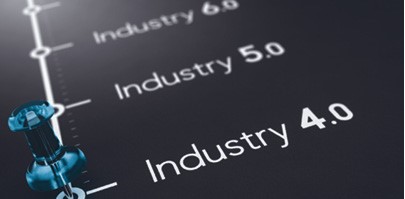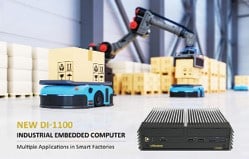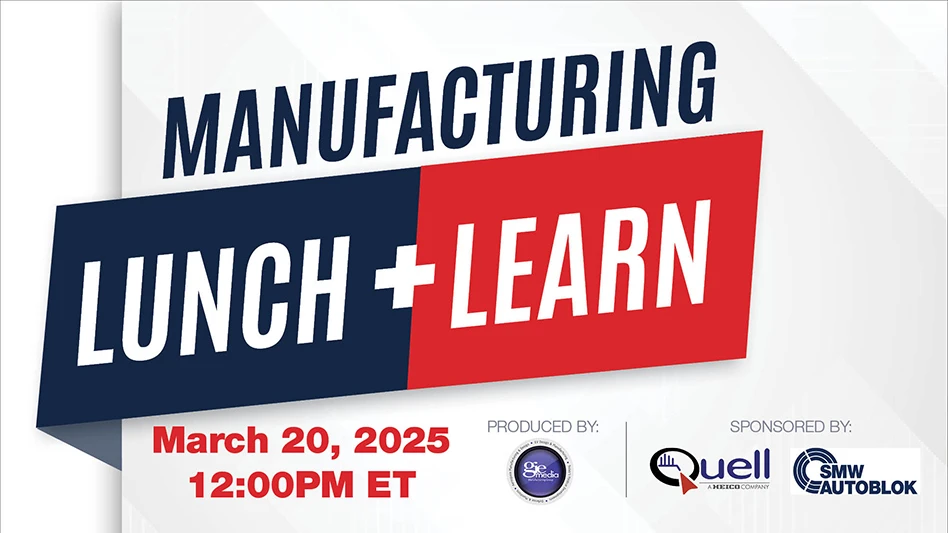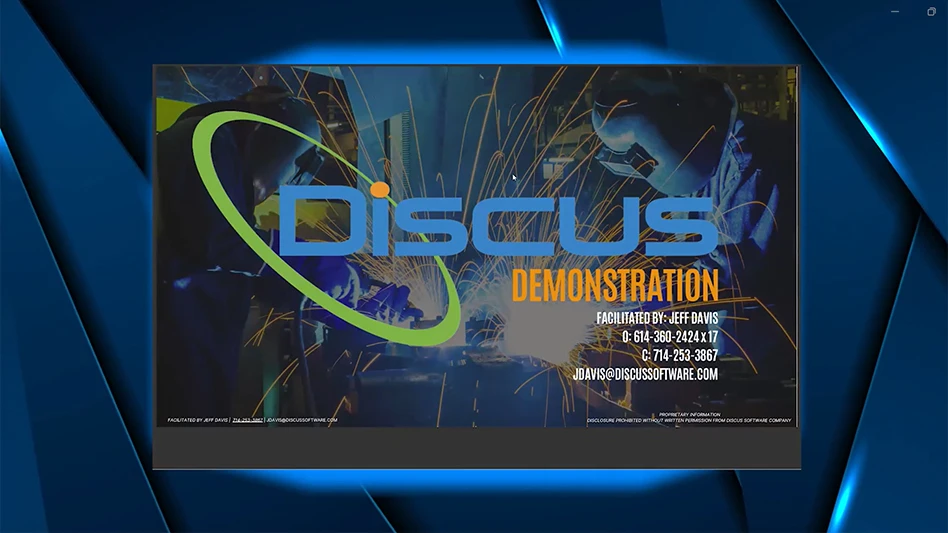
A principal in BDO Digital, Maurice Liddell facilitates innovative uses of technology for addressing clients’ business problems. Liddell is also leader for BDO’s blockchain – Distributed Ledger Technology (DLT) – helping clients establish, manage, and operate DLT. He develops cross-disciplined DLT teams to address the entire business life cycle from ideation to execution.
Aerospace Manufacturing & Design (AM&D): What do you consider the most important Industry 4.0 (I4.0) technologies?
Maurice Liddell (ML): That depends on the digital maturity of the manufacturer deploying them. Less digitally mature manufacturers will get the most benefits from investing in core information technology (IT). Manufacturers with greater digital maturity can take advantage of more advanced I4.0 technology, tailored to their business goals. For example, for advanced manufacturers prioritizing improving the customer experience, investments in ecommerce sites, chatbots, and customer self-service solutions will yield the greatest results.
One I4.0 concept that permeates all organizations regardless of maturity is the digital thread – a communication framework for sharing information among stakeholders across the entire supply chain. The end-to-end visibility it offers allows participants to spot disruption and demand in real time. All companies should be investing in technology to create digital threads in their own organizations, including enterprise resource planning (ERP), blockchain (distributed ledger technology), and third-party logistics.
AM&D: How can I4.0 technologies help manufacturers compensate for supply chain disruptions or cyberattacks?
ML: A major advantage is they offer enhanced visibility into disparate department functions and data. The digital thread allows manufacturers to identify and react to disruptions the instant they happen. Going a step further – artificial intelligence (AI) allows prediction and response to disruption before it happens. Integrating machine learning (ML) allows predictive capabilities to become smarter through time, leading to more precise, accurate outcomes. As a result, manufacturers can use resources more strategically and allot less time to managing risk.
AM&D: What are the risks of not investing in I4.0 technologies?
ML: Minimizing investments in I4.0 technologies makes manufacturers more susceptible to disruption, resulting in longer lead times in getting products to customers. Through time, the damage to key customer relationships will be irreparable.
AM&D: How can I4.0 technologies help manufacturers (and tier suppliers) understand and respond to production ramp-ups or slow-downs?ML: A supply chain management ERP system can automatically plan workflow when orders are received and schedule jobs effectively. Supervisors receive real-time updates on progress and resources that help them plan delivery dates. ERP keeps production consistent with demand for timely replenishment and lean inventory.
AM&D: Can improvements be quantified?
ML: According to BDO’s 2021 Industry 4.0 Survey, manufacturers that invested in I4.0 were 15% more likely to be thriving compared to manufacturers who weren’t investing in I4.0. They were also 15% less likely to be struggling.
AM&D: How should manufacturers prioritize I4.0 investments?
ML: Some manufacturers may be tempted to implement point solutions without first identifying a clear vision of how the technology will improve business operations, grounded in a financial model and concrete key performance indicators (KPIs). I4.0 investments must be tied to a business strategy and corresponding roadmap to reap the biggest rewards. There’s no one answer – manufacturers must prioritize differently based on their operating model, financial capital, current digital maturity, priority business goals, and more. Instead of focusing on a specific technology, start by identifying business goals and the strategy to pursue to achieve them. Then, choose the technologies that will provide the greatest support in reaching those goals.
AM&D: What are the biggest I4.0 trends?
ML: Based on the survey, we expect to see significant investment growth in AI and ML, Internet of Things (IoT), robotic process automation, blockchain, virtual/augmented reality (VR/AR), and 5G to improve supply chain and customer experience. These technologies will help address:
- Supply chain management
- Customer order cycle time
- Total delivered cost
- Performance to plan
- New product introductions
- Inventory turnover
- Customer service
- Customer experience
- Creation of new products, services
- Quality control
- Product enhancements
- Cost management
- Customization
- Delivery time
NEWS AND PRODUCTS
Industrial embedded computer

The DI-1100 series of compact, high-performance, and power-saving rugged embedded industrial computers for autonomous mobile robots (AMRs) ensure on-time delivery of components to the production line or goods to warehouse racks, and are suitable for 24/7 operation in outdoor remote monitoring systems. DI-1100 series use a high-performance 8th Gen quad-core Intel Core i7/i5/i3 (Whiskey Lake-U) CPU and support one DDR4 2,400MHz SO-DIMM up to 64GB to meet the high-efficiency computing requirements for real-time dynamic detection, obstacle detection, and multitasking.
The series support CMI, CFM, and MEC modules that provide 10GbE LAN, M12 X-Code LAN, DIO, and other I/O capabilities. The four-port PoE card provides up to 25.5W of power per port, is designed explicitly for PoE cameras, and supports functions such as remote restart and shutdown. The front access panel has a hot-swappable 2.5" HDD/SSD tray and an mSATA slot to store surveillance footage in high volume and collect data from production equipment, transmitted through 4G for analysis.
The DI-1100 series’ optional external cooling fan offers -40°C to 70°C temperature support, 9VDC to 48VDC voltage support, overvoltage protection, overcurrent protection, ESD protection, and 15W low power consumption.
XZR positioning stages

Built-to-order, high-precision XZR positioning stages (X-axis, Z-axis, and rotary-axis) let a user select from linear stages with travel lengths of 15mm, 30mm, 50mm, and 75mm for the X- and Z-axis featuring high precision 1mm per turn lead screws. A 60mm diameter rotary table or 100mm diameter rotary table are available for the rotary axis.
Four motor options are: -01, which has stepper motor driven axes; -02 has three-phase servo motor driven axes with Quadrature Incremental Optical Encoders; -03 has DC servo motor driven axes with Quadrature Incremental Optical Encoders; and -04 has stepper motor driven axes with Quadrature Optical Encoders for position verification.
The X- and Z-axis feature positional accuracy of 10µm and repeatability of 5µm; the 60mm rotary table features a ±0.01° repeatability, and the 100mm diameter rotary table features ±0.05° repeatability. Each axis is equipped with limit switches to signal the motion controller for end-of-travel positions. Rotary axes have calibrated scales for visual indication and precision pattern of threaded holes for mounting tooling or fixtures.
Get curated news on YOUR industry.
Enter your email to receive our newsletters.
Explore the April 2022 Issue
Check out more from this issue and find your next story to read.
Latest from Aerospace Manufacturing and Design
- Ralliant to establish global headquarters in North Carolina
- Philatron MIL-DTL-3432 military cables
- Beyond Aero refines its hydrogen-electric light jet
- Americase's advanced protective solutions
- Social media - what are your thoughts
- GE Aerospace secures Air Force engine contract
- Thomson Industries' online sizing and selection tool
- #53 - Manufacturing Matters - 2024 Leaders in Manufacturing Roundtable






